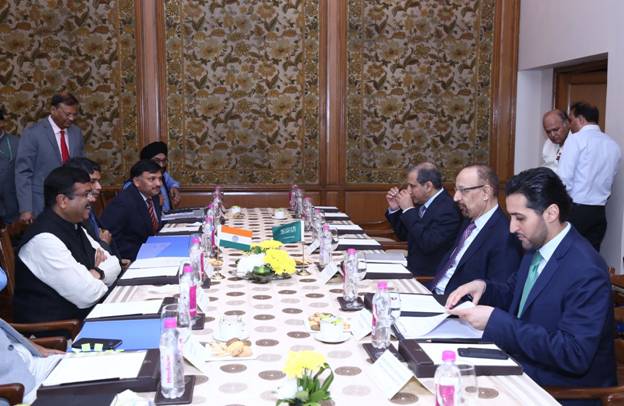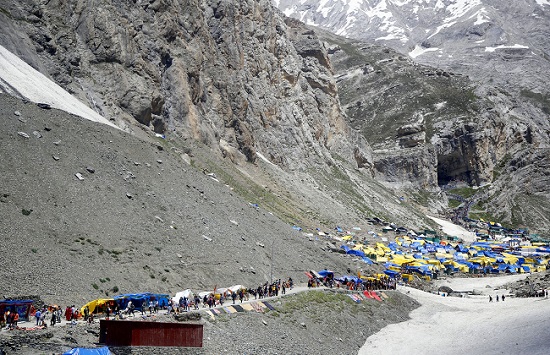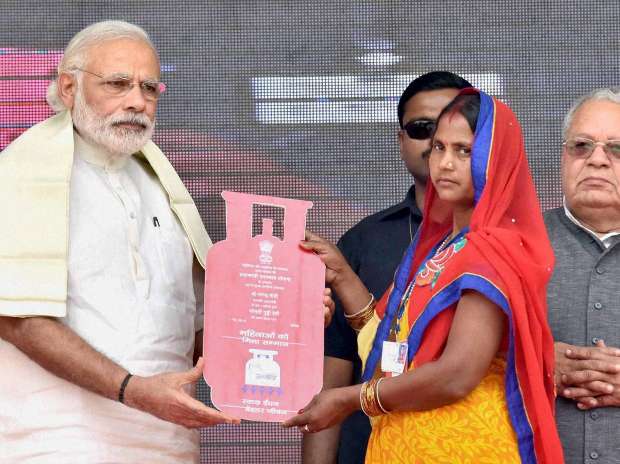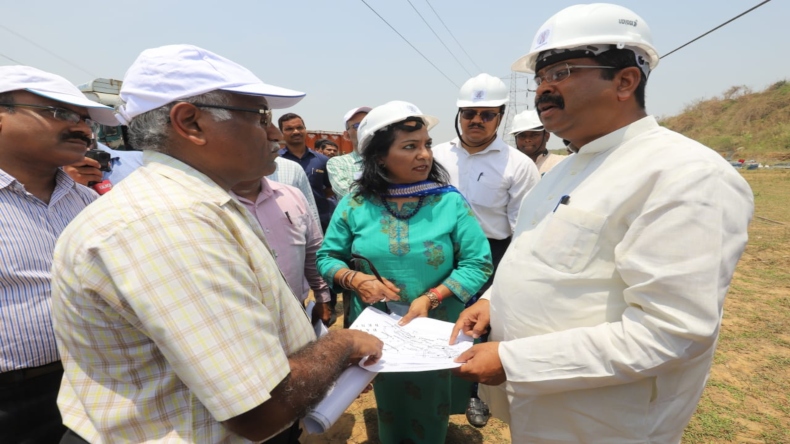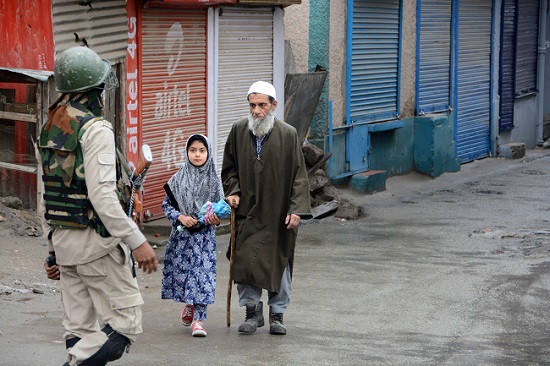Tenzin Gyatso, the 14th Dalai Lama celebrated his 84th birthday. Three months ago he completed his 60 years of exile in India. A lot of water has flown through Brahmaputra, locally known as Tsangpo in Tibet, since this monk ruler escaped from his China occupied country in March 1959 to save his life from the Peoples Liberation Army that crushed the Tibetan uprising at a cost of over 80 thousand Tibetan lives (as per UN documents). In the meanwhile China has emerged as a military and economic super power and has successfully converted its newest colony into a fortress with a huge network of cantonments, airbases and nuclear stations in addition to a flood of Han settlers who have already outnumbered the ethnic Tibetan population.
Even if Dalai Lama’s ‘government in exile’ at Dharamshala has yet to get
its first recognition from any world government, yet Chinese rulers expose
their helpless vulnerability on the faintest mention of word ‘Dalai Lama’ or
‘Tibet’ in any world forum or capital. In their over enthusiasm to stamp their
final control over Tibet by installing the next incarnation of current Dalai
Lama, Beijing’s two religious search committees, each headed by a senior
communist leader, have already completed two dry runs by identifying the new reincarnations
of Panchen Lama and the Karma Pa over past two decades. They have made
innumerable attempts to woo the Dalai Lama to return and settle in Beijing to
give the moral and political legitimacy to China’s rule over Tibet that Beijing
misses miserably.
Vijay Kranti, a senior journalist, Tibetologist and photographer, has
been frequently meeting and interviewing Dalai Lama over past 47 years since
1972 to write about his opinion on various issues related to Tibet, religion,
philosophy and Dalai Lama himself. On the Tibetan leader’s 84th birthday he
presents an assortment of his questions and answers on some issues which
present the Dalai Lama’s thinking about himself and his experience as a refugee
over past six decades. For obvious reasons, a few answers reflect his opinion
that has evolved differently over this long period.
Vijay Kranti : How your life as a refugee has affected you personally?
Dalai Lama : Generally speaking, these years have been a sad period. For the Tibetan nation as a whole this is the darkest period in history. But then difficulties and problems also help you come closer to reality. They also increase your inner strength. If China had not occupied Tibet then I might have been living in comfort. In that case I may have been a superficial Dalai Lama.
You see, Tibetans never had as many photographs of previous Dalai
Lamas as they have of
this Dalai Lama. And none of the previous Dalai lamas were
ever interviewed by the B.B.C. or the international press. Who did it for me? The Chinese
government! So don’t you think I should be thankful to them (laughs)…. That
is why the present Dalai Lama has become the most needed, most pivotal
personality. But also the saddest Dalai Lama ever.
Vijay Kranti : And for Tibet?
Dalai Lama : In early sixties some of our sincere friends expressed fears that the Tibetan issue was dead and that Tibet would disappear forever. But we steadfastly maintained our determination. As a result, Tibet is still alive. The issue is far from dead. Some credit goes to the Chinese themselves. They were ruthless. That strengthened the Tibetan determination. Tibetans should be thankful to the Chinese for at least this contribution.
Vijay Kranti : Did your Nobel prize help the Tibetan cause?
Dalai Lama : Sure. Tibetans and their cause are now better understood by people who did not know much about Tibet. Everyone now wants to know about Tibet and the Dalai Lama. It strengthened our people’s determination.
Vijay Kranti : But if the Tibetan issue remains unresolved for long, don’t you think it will frustrate Tibetan youth and they may adopt the path of violence ?
Dalai Lama : My answer is quite simple. If the situation goes out of my hands, or if the Tibetan freedom movement takes a violent turn, the only thing I can do is to quit. Non violence is the only way.
Vijay Kranti : As 14th Dalai Lama which of the previous Dalai Lamas impressed you most?
Dalai Lama : If I look at the overall personality of each Dalai Lama, the fifth impresses me the most. The most impressive thing about him was that he was not at all sectarian. He was very domineering though. That way I represent a sharp contract. I think I am too soft. I always feel myself a part of the crowd and not someone who is the head of a nation, or a big man. That feeling is always there. However, on spiritual ground I especially like the first and the second Dalai Lamas.
Vijay Kranti : Now that Tibet is occupied by China, what will happen to your reincarnation? China can manipulate the entire affair after your death.
Dalai Lama : I think this is not a big problem. First, history shows that all Dalai Lamas have not necessarily been from Tibet. For example the fourth Dalai Lama was from Mongolia. The most important thing is that the world is always changing. Tibetan customs, Tibetan institutions, the way of living and thinking would keep on changing. Presently the institution of the Dalai Lama is like a symbol of Tibet. Therefore, some friends of Tibet start fearing that without a Dalai Lama the Tibetan nation may not exist. But the truth is that any institution, including that of the Dalai Lama, may or may not exist, the Tibetan nation is going to stay. Yes, it will.
Vijay Kranti : A few years ago you had stated that your may be the last Dalai Lama….
Dalai Lama : Yes, I did say that if the institution of the Dalai Lama does not serve the interests of Tibet, then there is no need of maintaining it. I had also said that whether this institution should continue will completely depend upon the wishes of the Tibetan people.
However, current circumstances show that it is necessary that there
should be another Dalai Lama after me. And here I want to make it very clear
that the reincarnation, or rebirth of the present Dalai Lama
will never fall into Chinese hands because the Dalai Lama – I mean the present
Dalai Lama – deliberately left his country because of pressing
circumstances. This fact makes one thing very clear that if the present Dalai Lama takes
rebirth, his reincarnation will be for a very specific purpose.
Because his predecessor left his own country Tibet deliberately, and for a specific purpose, to live in India, then his reincarnation will also definitely reappear in that area and not in Chinese hands. That is definite, otherwise there is no logic behind my coming into exile and working for Tibetan freedom.
Vijay Kranti : But what prompted you to say that you could be the last Dalai Lama?
Dalai Lama : There were political reasons behind that. At that time, and even now, the Chinese government has been trying desperately to show as if the entire Tibetan problem is limited only to the Dalai Lama as a person, or the institution of the Dalai Lama. This was a very clever attempt to divert the world’s attention from the real Tibetan issue. That is why I always say that the actual issue is not Tenzin Gyatso, the 14th Dalai Lama, or for that matter, the next Dalai Lama. The real issue is the six million Tibetans, their future, their identity, their welfare and happiness.
Whether the institution remains or not, my own rebirth will continue. It is a different matter whether people designate him the next Dalai Lama. In one of my daily prayers I always say that as long as space remains, and as long as the living beings’ sufferings remain, I shall be there to serve them and to dispel their misery.
Vijay Kranti : And now I ask you just the opposite question. If Tibet becomes free in your life-time what role have your thought of for yourself in the new Tibetan government?
Dalai Lama : In 1963 our government-in-exile adopted a draft constitution for Tibet. In this constitution I had made it very clear that the powers of the Dalai Lama can be abolished by a two-third majority vote among the Tibetan people’s deputies. Our idea has been quite clear that the future Tibet should be a genuine democracy.
I would then live peacefully like an old monk. Wearing thick glasses
and walking with the help of my stick (laughs)…. And if my friends provide me
a helicopter, I would love to move around in my country meeting people (laughs
again)…. The main thing is that I should remain outside of power. Like
Mahatma Gandhi, I too should not hold any public office. He remained there as long as he was needed in the national independence movement. Once
it was achieved, he moved away. That is a great thing.
Vijay Kranti : How long do you intend to fight for freedom for your country?
Dalai Lama : Like any other nation, Tibet and Tibetans are also entitled to human rights, including the right to preservation of their separate identity and way of life. To achieve this goal they would continue to struggle as long as they remain under foreign military occupation. Free will is the only real basis of determining the destiny of our six million people. Until this right is restored to my people, there shall be no peace in their hearts and minds. Tibetans have endless faith in themselves as well as in the righteousness of their struggle. We won’t stop till the goal is achieved.
Vijay Kranti : Do you think there could have been a better way of handling the situation during the 1950s in Tibet?
Dalai Lama : No, no. I think whatever we should have done between 1951, when the Chinese forced the 17-point agreement on us, and the uprising of 1959, was done. That was the best that could have been done in the given conditions. But it seems that things had gone wrong much before that. I always feel sad about that.
Vijay Kranti : Would you please elaborate?
Dalai Lama : I will give you a simple example. When India got Independence, our Tibetan government should have acted properly. In view of our centuries-old ties and for being the most friendly neighbour, rather a brother country, we should have sent the biggest delegation to participate in the Independence celebrations of India. If they thought I was too young, a 12-year-old boy, then the Tibetan delegation should have been headed by the Tibetan Regent. They should have also met Mahatma Gandhi, Pundit Nehru, other India leaders and freedom fighters. This would have, at least, registered our independent status as a nation.
Vijay Kranti : Do you still think that leaving Tibet in 1959 and going into exile was the right decision ?
Dalai Lama : Yes. Because that was the only way left. I still believe so. Some of my own friends, including a member of my cabinet, the ‘Kashag’, had doubts about the wisdom of this decision. It was only when the Cultural Revolution started that he admitted in one of our meetings that till that day he had some doubts whether it was really necessary for the Dalai Lama to leave Tibet. I have never had any doubts about it.
Vijay Kranti : The Chinese government has been inviting you to return and stay in Beijing. What is your reaction?
Dalai Lama : They believe that once I return on their terms the entire Tibetan problem would be solved. That is why they have been insisting that I should return and settle down in Beijing. But as any other self-respecting human being I also regard the freedom of thinking, movement and speech as more important than any personal comfort. Here in India I have these freedoms. Therefore, I would prefer to live as a poor refugee with these freedoms than live in luxury in Beijing as a puppet without freedom. I am very clear about it.
Vijay Kranti : Some Tibetans believe that India has not done much for the cause of Tibet. Do you agree with that?
Dalai Lama : No. I don’t agree with that. If any Tibetan think so, it is not out of anger but because of his affinity with India, sense of belonging, and greater expectations. When you live in a family, you can expect something more than what you can get. You sometimes complain without bothering about the other problems of the family. India has really done a lot for us. The government of India has done everything that could have been done within its limitations.
Must read in News Intervention:
China’s conspiracy to instal its puppet as Tibet’s next Dalai Lama
